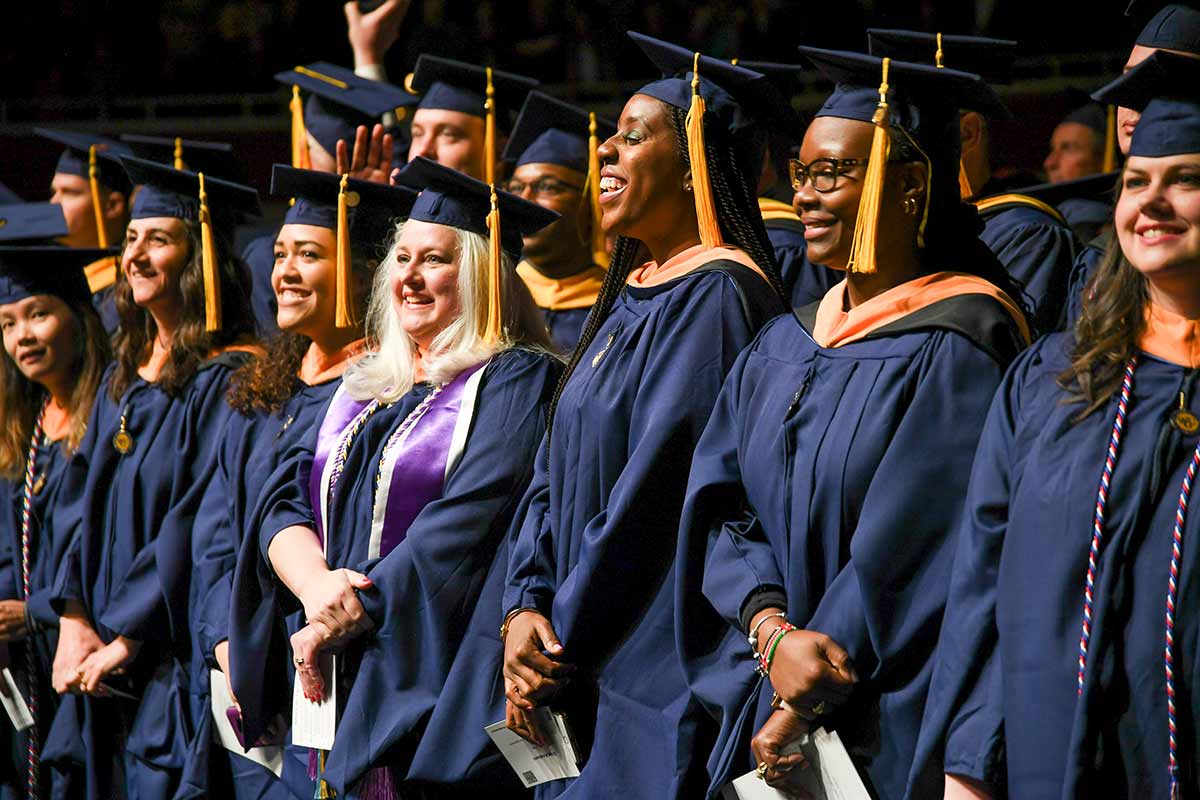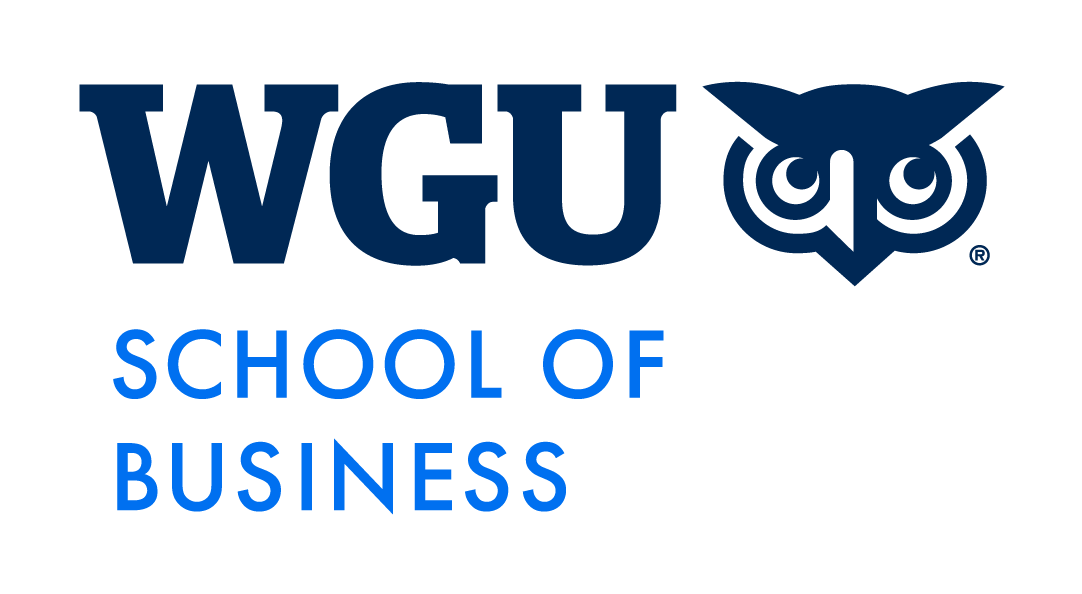Powering Up:
Essential Skills for Success
in the Age of AI

The memory is still fresh in Casey Clark's mind.
The vice president of academic operations for the Western Governors University School of Business participated in a panel discussion for supply chain professionals. During the event, Clark introduced the school's new set of courses focused on what traditionally have been called soft skills such as communication, adaptability, and problem-solving.
When the room of supply chain professionals applauded, it signaled to Clark he’d underscored a critical point.
“This is what is missing for students that we’re hiring fresh out of school,” one executive told Clark afterward. “They are missing these skills.”
The enthusiastic response highlights a growing recognition across industries: In an era of rapid technological change and artificial intelligence (AI) development, uniquely human abilities are more crucial than ever for workplace success. According to a recent Deloitte Insights report, 92% of companies now say that human capabilities and soft skills matter more than hard skills.1
Clark uses a different term for these talents – power skills – to emphasize their critical importance. He and Sandra Sjoberg, associate dean and director of marketing and innovation programs at WGU School of Business, have become strong advocates for their central role in higher education today.
“Through research, we know this is what employers are looking for,” Sjoberg said. “It’s really employer-driven, and we know that students need to demonstrate this in the hiring process.”
[1] Forbes. (April 2024). Soft Skills In The Workplace. https://www.forbes.com/sites/bryanrobinson/2024/04/04/soft-skills-in-the-workplace/
Casey Clark, vice president of academic operations for the WGU School of Business.
Casey Clark, vice president of academic operations for the WGU School of Business.
The memory is still fresh in Casey Clark's mind.
The vice president of academic operations for the Western Governors University School of Business participated in a panel discussion for supply chain professionals. During the event, Clark introduced the school's new set of courses focused on what traditionally have been called soft skills such as communication, adaptability, and problem-solving.
When the room of supply chain professionals applauded, it signaled to Casey he’d underscored a critical point.
“This is what is missing for students that we’re hiring fresh out of school,” one executive told Clark afterward. “They are missing these skills.”
Casey Clark, vice president of academic operations for the WGU School of Business.
Casey Clark, vice president of academic operations for the WGU School of Business.
The enthusiastic response highlights a growing recognition across industries: In an era of rapid technological change and artificial intelligence (AI) development, uniquely human abilities are more crucial than ever for workplace success. According to a recent Deloitte Insights report, 92% of companies now say that human capabilities and soft skills matter more than hard skills.1
Clark uses a different term for these talents – power skills – to emphasize their critical importance. He and Sandra Sjoberg, associate dean and director of marketing and innovation programs at WGU School of Business, have become strong advocates for their central role in higher education today.
“Through research, we know this is what employers are looking for,” Sjoberg said. “It’s really employer-driven, and we know that students need to demonstrate this in the hiring process.”
[1] Forbes. (April 2024). Soft Skills In The Workplace. https://www.forbes.com/sites/bryanrobinson/2024/04/04/soft-skills-in-the-workplace/
From ‘soft’ to ‘power’
This emphasis on power skills aligns with LinkedIn's 2024 report on the most in-demand skills, which lists communication as the top skill, followed by teamwork at No. 7 and problem-solving at No. 9. Notably, the power skill of adaptability experienced the biggest year-over-year growth in the survey and is listed as the newest most sought-after skill of the moment.2
To meet this demand, WGU School of Business has developed four new courses covering giving and receiving feedback, adapting to ambiguity, empathy and inclusive collaboration, and navigating complex problems.
“These power skills can unlock the things that ChatGPT can’t replicate,” Clark said. “ChatGPT may be able to type an email, but no way is it going to be able to assess the situation and understand the ambiguity in it and design a strategy that brings together multiple groups.”
The rise of AI tools such as OpenAI’s ChatGPT has only increased the need for distinctly human abilities, Sjoberg said.
New data supports this. A Wiley Workplace Intelligence Survey found that 80% of professionals believe these power skills are more important than ever with the evolution of AI.3
“AI, yes, it’s intelligent, but it lacks some of the human aspects and it lacks that critical thinking, that assessment, that problem solving,” Sjoberg said. “The future of work isn’t just knowing AI. The future of work is knowing how to think about AI and how to do something with its output.”
Sandra Sjoberg, associate dean and director of marketing and innovation programs at WGU School of Business
Sandra Sjoberg, associate dean and director of marketing and innovation programs at WGU School of Business
Emphasis on practical application
WGU’s approach goes beyond simply teaching concepts to giving students hands-on experience applying power skills. Courses include interactive activities, simulations, peer-to-peer learning communities, and feedback from industry professionals.
“Any way that we can get the student to do the activity and not just study the concept, that’s what we have to do,” Sjoberg said. “We have to get to the practical application, not just a theoretical construct.”
For example, in a user experience design course, students don’t merely learn about creating wireframes. They practice getting feedback, communicating with stakeholders, and incorporating problem-solving skills throughout the design process.
This experiential approach helps students build portfolios demonstrating their power skills to potential employers. It also prepares them for the realities of the modern workplace, where the U.S. Department of Labor emphasizes that power skills provide a “competitive edge” in the job market.4
The focus on power skills reflects broader changes in how companies operate, Clark said. As organizations have shifted from rigid hierarchies to more collaborative structures, the ability to influence and communicate across teams has become essential.
[2] LinkedIn. (2024). The Most In-Demand Skills of 2024. https://www.linkedin.com/business/talent/blog/talent-strategy/linkedin-most-in-demand-hard-and-soft-skills
[3] EverythingDiSC. (n.d.). Taking the Person Out of Interpersonal: Why AI Can Never Replace Soft Skills. https://www.everythingdisc.com/blogs/taking-the-person-out-of-interpersonal-why-ai-can-never-replace-soft-skills/
[4] U.S. Department of Labor. (n.d.). Soft Skills: The Competitive Edge. https://www.dol.gov/agencies/odep/publications/fact-sheets/soft-skills-the-competitive-edge
‘These skills are essential’
That crosses over not just to the students and their post-graduation work, but also to Sjoberg and Clark’s jobs, as well. Both said they rely on the very skills the new classes are teaching students.
Clark and Sjoberg bring a wealth of experience to their roles at WGU School of Business.
Clark leads a dynamic team of program mentors as vice president for academic operations. His comprehensive background spans student life, faculty engagement, and leadership, making him particularly adept at enhancing the academic experience and forging meaningful career connections for students.
Sjoberg brings a unique blend of academic and industry experience to her role. Prior to her current position, she served as marketing program chair and course faculty at WGU.
Before entering academia, Sjoberg spent 16 years in the consumer products industry, working with giants such as Newell Rubbermaid, The Coca-Cola Company, and Kraft Foods.
“We're not just teaching theory,” Sjoberg said. “We're drawing on real-world experiences to prepare students for the challenges they will face in their careers.”
Clark agreed.
"Our own careers have shown us the importance of these skills," he said. "Whether you are leading a team, collaborating across departments, or adapting to new technologies, these power skills are essential.”
Expanding the reach
For other schools looking to incorporate power skills into their programs, Clark and Sjoberg emphasize the importance of close collaboration with employers throughout the curriculum-development journey. WGU uses advisory councils, market research, and ongoing industry feedback to ensure their programs align with workforce needs.
They also encourage schools not to shy away from assessing power skills, which some see as too subjective to measure. While it may require different approaches than traditional assessments, Clark argues these skills can be evaluated through case studies, simulations, and other hands-on demonstrations.
Ultimately, Clark and Sjoberg said they believe higher education must take a wider view of preparing students for success – one that goes beyond technical knowledge to nurture the uniquely human abilities that will remain vital in an AI-driven world. This approach is supported by a recent New York Times opinion piece, which argues that the AI economy will make jobs more human-centric.5
The skills are also valuable beyond the workplace. As Sjoberg and Clark noted, they apply to personal situations, family, and other interactions along life’s path.
“The great thing is that this is going to help in your job," Clark said, "but this is (also) going to help with your family, make you a better friend, (and) make you a more productive member of society.”
As AI continues to reshape the workplace, the ability to adapt, communicate, empathize, and solve complex problems will only grow more valuable, the duo said.
By embedding these power skills throughout their programs, WGU aims to equip students not just for their first job, but for lifelong success.
“A degree without career prospects is a broken promise,” Clark said. “When we build our programs, we are building them for the opportunity.”
[5] The New York Times. (February 14, 2024). Opinion | The A.I. Economy Will Make Jobs More Human. https://www.nytimes.com/2024/02/14/opinion/ai-economy-jobs-colleges.html
This custom content is sponsored by Western Governors University School of Business and developed by Inside Higher Ed's sponsored content team. The editorial staff of Inside Higher Ed had no role in its creation.








